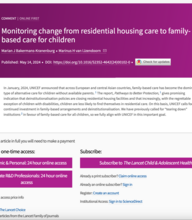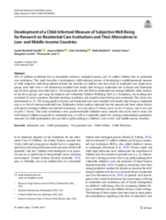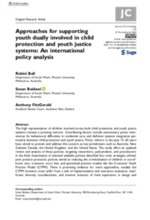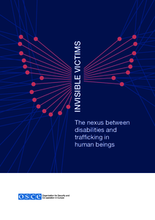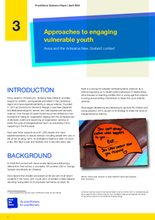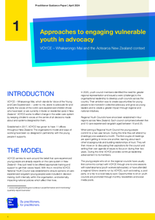Displaying 181 - 190 of 10392
This is a comment on the the report Pathways to Better Protection which gives promising indication that deinstitutionalisation policies are closing residential housing facilities and that increasingly, with the exception of children with disabilities, children are less likely to find themselves in residential care.
This study describes a participatory, child-informed process of developing a multidimensional measure of child subjective well-being tailored towards the priorities of children who have lived in residential care. The study was conducted with focus groups in Kenya and Guatemala.
Leon Fulcher discusses how to attain long-term holistic development of children in alternative care.
This Technical Note lays out ways in which national child protection systems can be enhanced to include children in the context of migration.
Martin Punaks discusses effective advocacy campaigning in this episode of Care Conversations.
This study offers an updated review and analysis of policy reforms across both the child protection and youth justice systems in jurisdictions such as Australia, New Zealand, Canada, the United Kingdom, and the United States, targeting researchers, policymakers, and practitioners in the field.
This short paper provides an overview of the existing links between disability and trafficking in human beings, how persons living with disability are affected by trafficking, and to what extent legal standards, policy frameworks, and anti-trafficking measures integrate concerns associated with disabilities.
This practitioner guidance paper outlines the work of the Pillars Ka Pou Whakahou -- a charity based in New Zealand that provides support for the children and families of those in prison by providing wraparound support for these families, with home-based social work and a youth mentoring programme.
This practitioner guide outlines the Aviva program in Christchurch, Aotearoa New Zealand that provides support to children, young people and adults who have experienced family or sexual violenc
This practitioner guidance paper details the work of the VOYCE – Whakarongo Mai centres in New Zealand which centres its work around the belief that care-experienced young people are already experts on the care system – they just need to be offered appropriate training and support to get their voices heard.

